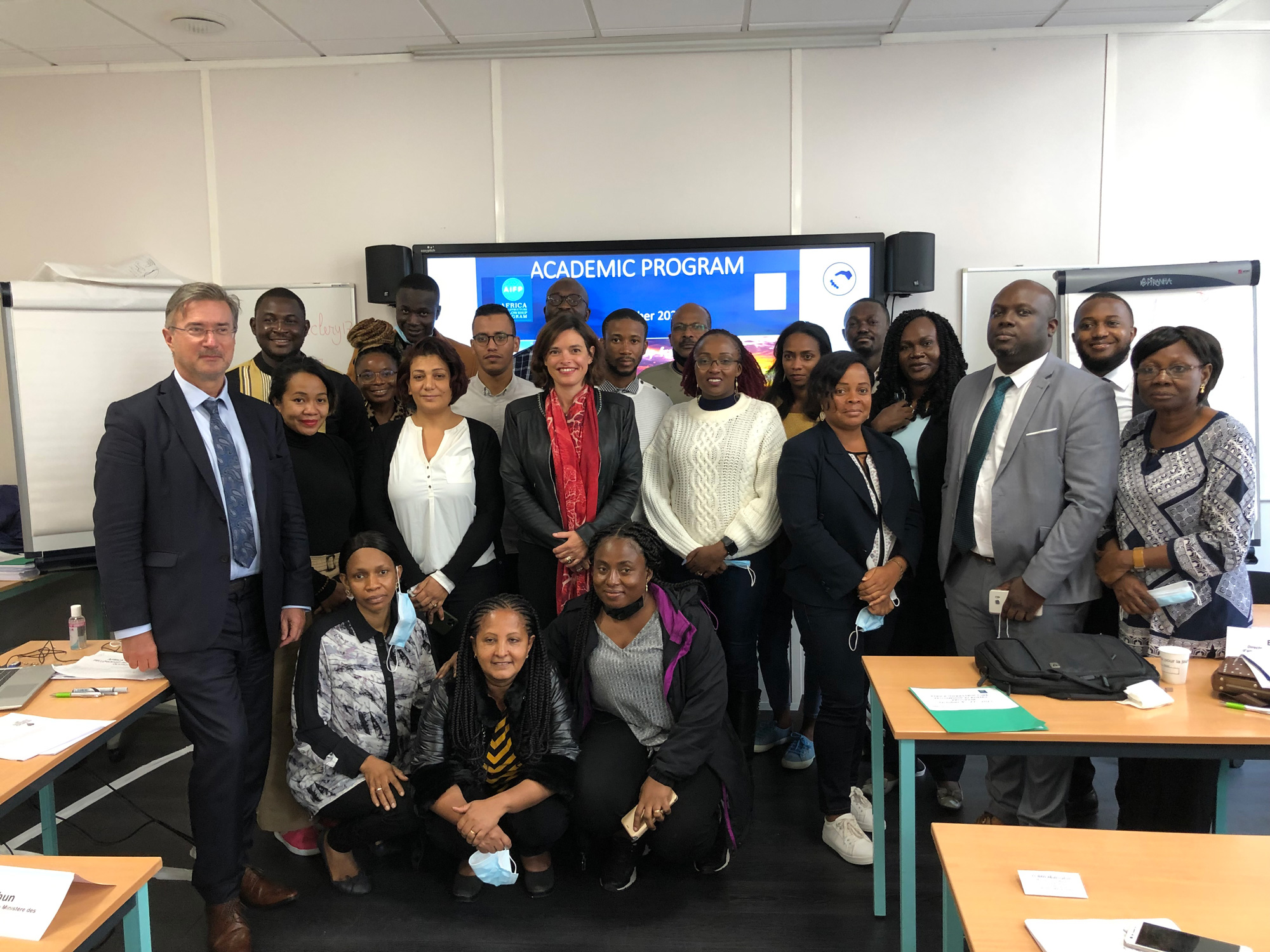1103 results found
Featured results



More results
The GI Hub today launches Improving Delivery Models, an initiative that showcases proven delivery model improvements that enhance the quality of infrastructure. Many of the challenges faced in delivering infrastructure can be traced back to the early-stage processes of choosing the delivery model and structuring the project.
Cities are at the forefront of the pandemic crisis and are key players in the fight to achieve net-zero emissions targets. The recovery choices they make today will set urban agendas for years to come.
This month the GIobal Infrastructure Hub (GI Hub) was delighted to participate in the second Africa Infrastructure Fellowship Program (AIFP). The capacity-building program is designed to upskill African government infrastructure specialists, enabling them to facilitate increased investment in a pipeline of new, sustainable infrastructure that has positive social and economic impact in African communities.
The ACGF is an innovative finance facility dedicated to accelerating green infrastructure investment in Southeast Asia with over USD1.4 billion in loans from co-financing partners, under the ASEAN Infrastructure Fund (AIF). The ACGF’s technical assistance supports governments to identify and prepare commercially viable green infrastructure projects while the ACGF loans are utilised to cover upfront capital investment costs. This two-pronged approach ‘de-risks’ green infrastructure projects, making them more attractive to private capital investors.
Can investment in infrastructure fuel economic recovery? Is there a role for infrastructure in the transition to a circular economy? Hear what insights GI Hub's CEO, Marie Lam-Frendo shared in this interview for the official G20 Italy: The 2021 Rome Summit publication.
The Indonesian Government aims to expand its geothermal energy sector to reduce greenhouse gas emissions. The Green Climate Fund (GCF) and Clean Technology Fund (CTF) are offering USD127.5m in financing, consisting of a senior concessional loan for public sector projects, a reimbursable grant for private sector projects, and a grant for technical assistance. World Bank will also provide USD100 million loan to scale up investments in geothermal energy in Indonesia.
Globally, Sub-Saharan Africa experiences one of largest energy access gaps. Electricity reaches only about half of its people, while clean cooking only one-third; roughly 600 million people lack electricity and 890 million cook with traditional fuels. This has a disruptive impact on social infrastructure such as schools and hospitals which lack reliable electricity. A clean energy revolution in sub-Saharan Africa is urgently needed to win the fight against energy poverty.
RaiseGreen is a new crowdfunding marketplace/platform for green projects. Individuals, startups, non-profits or even local governments looking to start their own green projects can utilise the platform to create and develop the project, set their own terms, and present their offering on RaiseGreen’s platform for potential investors. The platform offers a wide variety of replicable, templatised investment opportunities for solar power, affordable housing, EV charging stations, agriculture, water projects, and microgrids.
CFA is a 4-year programme funded by the UK Department for Business, Energy & Industrial Strategy (BEIS). Aims to identify and develop pipelines of bankable climate-related projects that can attract investment at scale from the private sector. In 2017, Nigeria took part in the inaugural pilot CFA process The CFA initiative has since been extended to Mexico, Colombia, Peru, South Africa & Turkey. Stakeholders involved Conceiver: Ian Callaghan Associates Funder: UK Government (BEIS) Neutral convener for the CFA process: Nigerian Economic Summit Group
After 99% of Queensland was declared a natural disaster zone due to the cumulative effects of Cyclone Yasi and widespread flooding, the Australian Federal Government imposed a one-off levy to finance AUD1.8 billion to rebuild infrastructure.
The rapid growth in Indonesia’s urban areas required a rapid scale up in infrastructure investment. The Government of Indonesia set up Indonesia Infrastructure Guarantee Fund (IIGF) as a state-owned enterprise (SOE) to leverage private investments in infrastructure projects by providing government guarantees or credit enhancements to PPP projects.
The Contracts for Difference (CfD) were introduced as part of the UK's Electricity Market Reform to incentivise investment in secure, low-carbon electricity, improve the security of the UK’s electricity supply, and improve affordability for consumers.
As the government of Saudi Arabia aimed to rapidly diversify its economy away from oil, there was an increased focus on sustainable strategies and growth of Islamic capital markets. With its Green Sukuk Framework, Saudi Electricity Company raised USD1.3 billion for low-carbon and climate-resilient infrastructure.
To help transition to a low-carbon green economy, China announced plans to grow a corporate green bond market, establishing pilot zones in five provinces and autonomous regions to inform national green finance policies.
The Chicago Infrastructure Trust (CIT) was created in 2012 to provide focus and leadership to build a pipeline of executable public-private partnership projects to meet Chicago’s infrastructure needs, drive economic development, and create jobs.
Singapore's SolarNova program is a whole-of-government effort to accelerate the deployment of solar photovoltaic (PV) systems. The government took the lead in rolling out the rooftop PV systems across public housing and government buildings in collaboration with solar developers.
The Canadian Government established a national infrastructure bank to help attract private sector investors and institutional investmet in infrastructure projects in Canada that will generate revenue and are in the public interest.
The Pensions Infrastructure Platform was developed to facilitate long-term investment in UK infrastructure by pension schemes. It was established by UK pension schemes to operate and invest for pension schemes. It allows pension schemes of all sizes to invest in national infrastructure projects by pooling resources into a single investment fund.
Australia’s national government introduced policy to incentivise asset recycling / capital recycling by state-level governments, offering up to 15% of the sale or lease proceeds of asset privatisations for re-investment in infrastructure projects. Since 2014, the State of New South Wales has raised AUD32.7 billion through asset recycling.
European Bank for Reconstruction and Development (EBRD) launched the Green Economy Transition (GET) approach in 2015 to accelerate investments that drive environmental benefits. Following the severe impact of the COVID-19 health emergency, a new GET 2.0 was proposed to contribute to a green economic recovery post-COVID-19.



 Improving Delivery Models
Improving Delivery Models




















